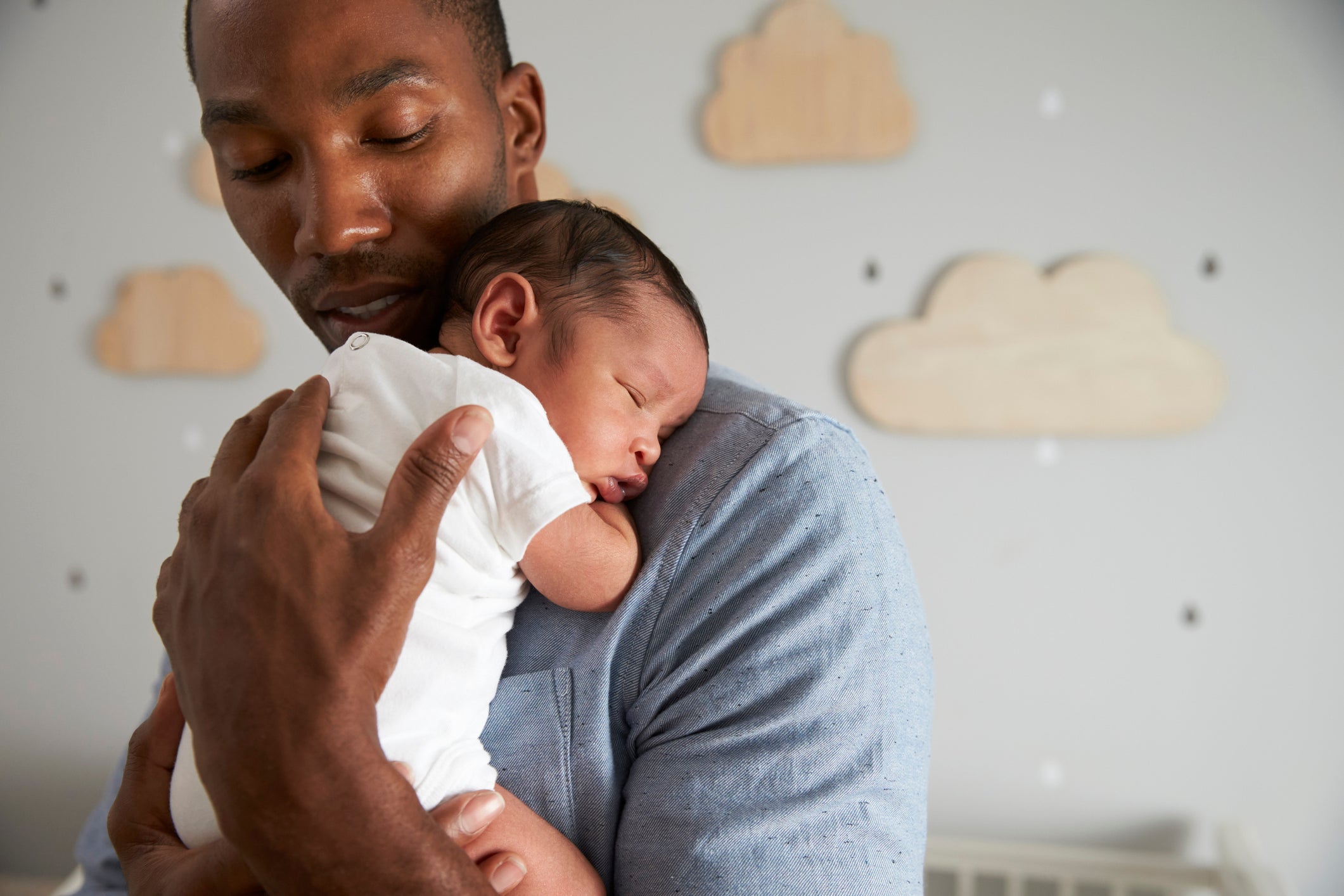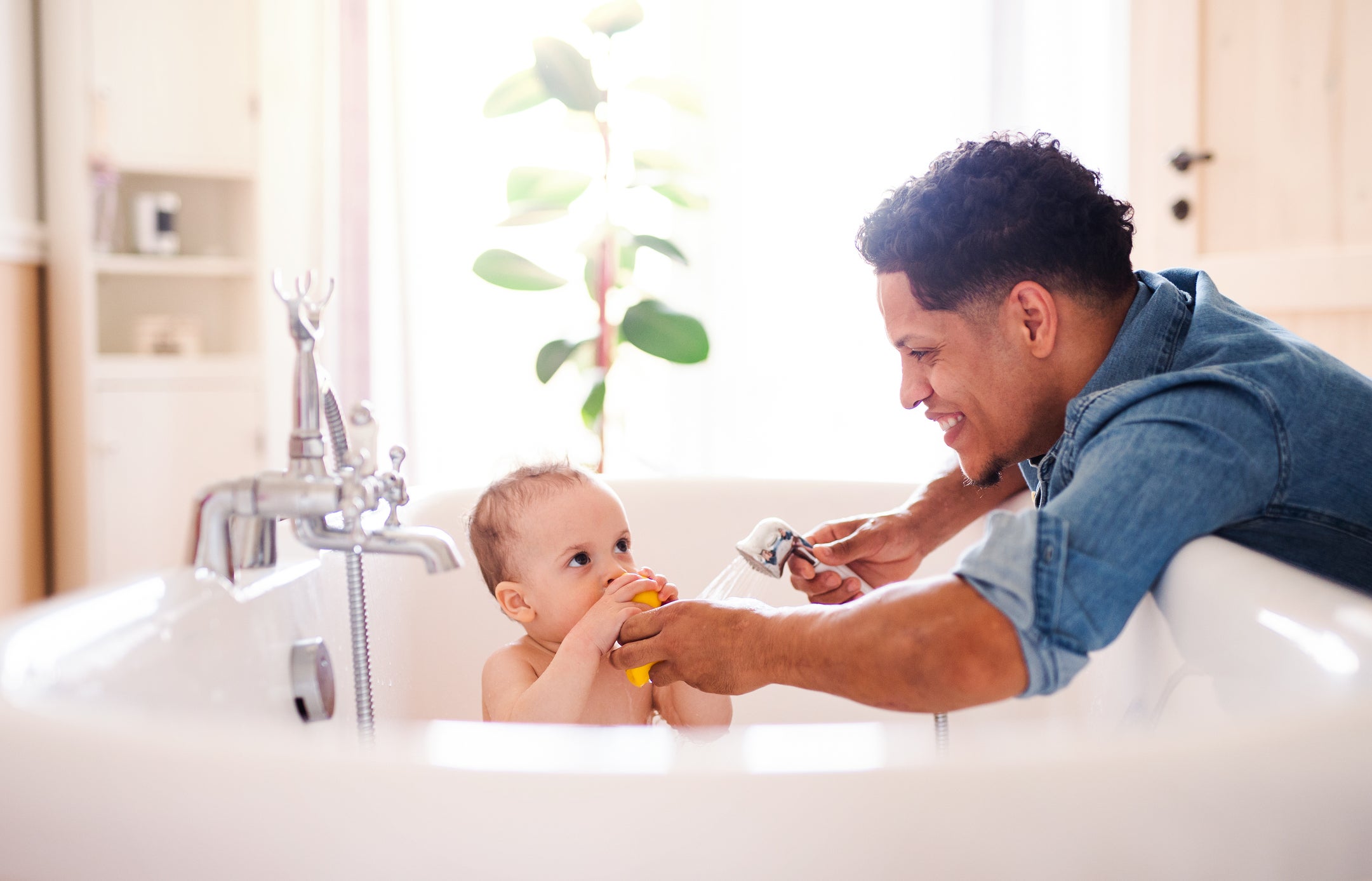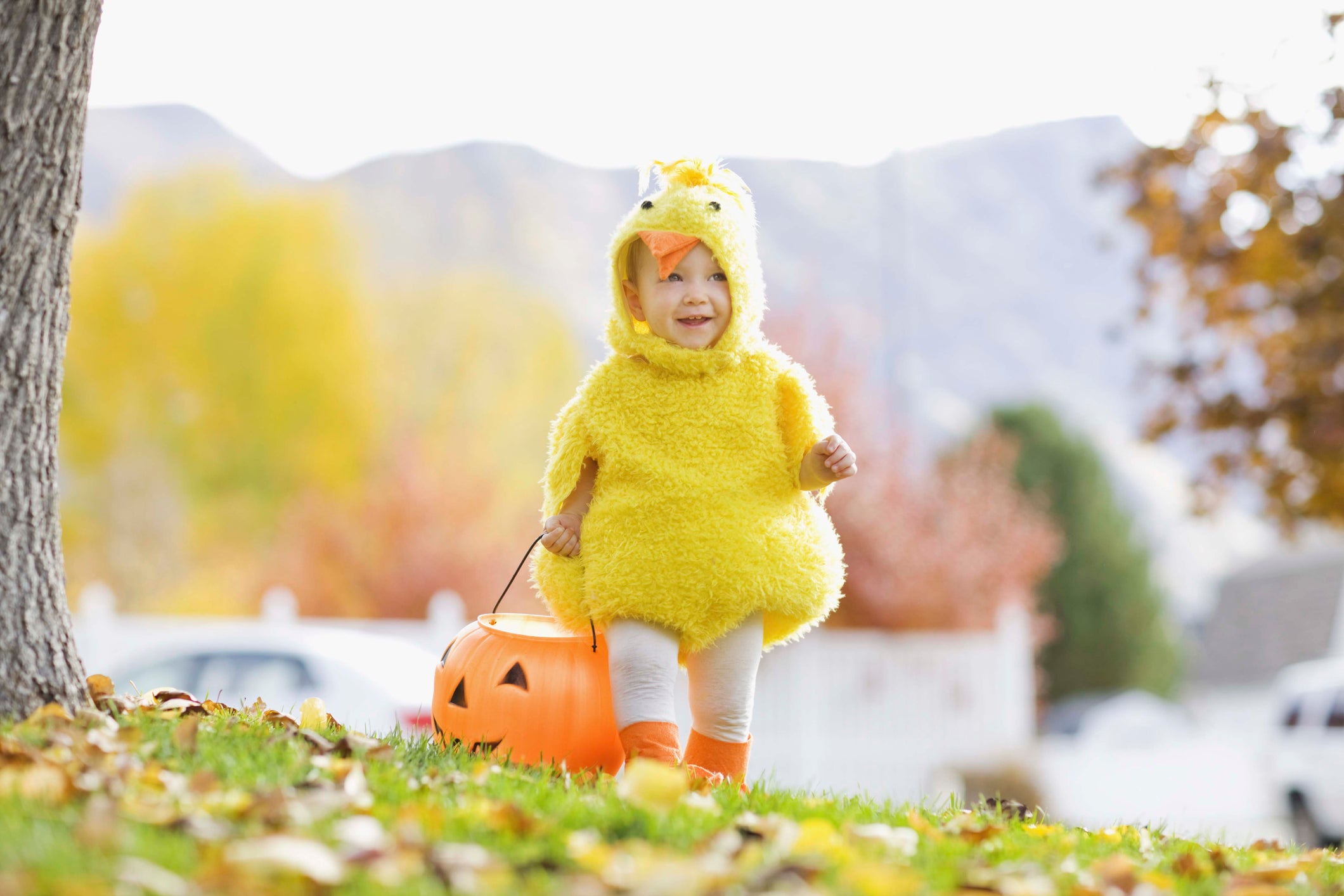-
Creative Ways to Celebrate Father’s Day

Father’s Day is almost here! How will you celebrate? If there’s a father in your life celebrating his very first Father’s Day, you’ll want to make it extra special. Even for seasoned dads, though, you’ll want to find a way to make it fun. We’ve got some creative ideas for you!
- Give Dad the day off. He might want to sleep in, or he might want some me time, to just do whatever he wants, and you can facilitate that by taking the kids away from the house. A day out with his friends might be just the thing, or a game of golf, or if you think he needs some pampering, plan him a spa day!
- Go on a family adventure. Let Dad pick the destination. It could be a museum, or the zoo, or a baseball game, or a road trip, or it could just be a family walk or a bike ride. As long as you’re doing something he likes and you’re doing it together, it counts.
- Take some time for just the two of you. On the other hand, especially if this is his very first Father’s Day, he might cherish some time alone with his partner, the way it was before the little bundle of joy turned life on its head.
- Do something outdoorsy. In June, there’s no shortage of outdoor activities! Go for a swim, take a hike, go camping, or boating. Have outdoor movie night or play lawn games together.
- Do something indoorsy. If Dad isn’t really an outdoorsman, an indoor family day might be the right fit. Binge superhero movies, play board games, sing karaoke, or do puzzles. It might even be fun to do a craft together, especially your kids will be into it.
- Make something for him. Speaking of crafts, a dad’s first Father’s Day is a great time to make him something “from the baby.” Create some art with little hand or footprints, or find something more elaborate on Pinterest. You could also make him a photo gift with your little one’s face on it.
- Plan a special meal. It could be a fabulous brunch, or a cookout, or a picnic in the park. You can let the kids help make it or take the family out on the town. If you really want to make it memorable, take an online cooking class together!
- Use your words. Dads like to feel appreciated, too, so take the time to write him a sweet note or take him aside and tell him how much he means to your family and what a great job he’s doing.
At the Center for Vasectomy Reversal, we love helping people build their families! We pride ourselves on providing optimal surgical results and uncompromising, concierge-level patient care. Under the direction of Dr. Joshua Green, our team provides state-of-the-art treatment for men who need a reversal of their vasectomy or have other fertility concerns. To learn more, call 941-894-6428 or contact us through our website.
-
Different Ways Dads can Bond with Their Newborn Babies

If you’re a new dad, you’ve just started a great adventure that will keep you on your toes for years to come. The first step? Bonding. Bonding creates an intense attachment between a parent and child, and while common wisdom used to be that immediate bonding was crucial, it’s actually a very individual experience, and for some parents it can take a lot longer. Relax, you’ve got this! Here are some suggestions for speeding the process.
- Indulge in some serious snuggle time. Cuddling your baby feels good for both of you and can give your little one a sense of security. Try skin-to-skin contact, holding your baby on your bare chest. This helps your newborn get used to your smell and learn the sound of your heartbeat. It’s good for them: babies who get skin-to-skin contact have more consistent temperature, heart and breathing rates, and more stable blood sugar.
- Take the late shift. Or the early shift! Get involved with the care of your baby. Even if your partner is breastfeeding, you can get up with the baby in the night and give your little one a bottle. You can also change diapers, give baths, and wear your baby in a sling or carrier while you go about your morning routine. Your partner will get some sleep and you’ll get some good quality time with your infant.
- Have a conversation. It may seem strange to talk to this little person who doesn’t talk back. Hearing language is what helps babies learn to speak, though, so keeping up a steady stream of words benefits your little one. Narrate your day, read stories, and describe the world around you to help build your child’s vocabulary and strengthen the bond between you.
- Get comfortable with silly. There’s nothing more delicious than baby giggles, and dads are often the best at eliciting them! Sing a silly song, make a funny face, or play a game of peekaboo. Anything that’s animated and lively will hold your baby’s attention.
- Keep moving. Babies are used to the constant movement of being in the womb, so they like to be rocked, swayed, jiggled, bounced, and danced around the room.
- Learn how to comfort. Don’t just interact with your baby during happy times. Learning what helps sooth your little one is a big part of parenting and will help you to bond.
- Find your groove. Your partner probably has her own way of doing things, and that’s great, but you’ll develop your own parenting style, too. Be confident in your abilities as a dad and learn how to take charge.
At the Center for Vasectomy Reversal, we love helping people build their families! We pride ourselves on providing optimal surgical results and uncompromising, concierge-level patient care. Under the direction of Dr. Joshua Green, our team provides state-of-the-art treatment for men who need a reversal of their vasectomy or have other fertility concerns. To learn more, call 941-894-6428 or contact us through our website.
-
Facts to Consider When Thinking About Having More Children

What’s the right number of children for a family to have? The average number of kids per family in the United States is around 1.8, but of course, some families have no children at all, while others have six or eight kids! There’s no right answer to the question, so how do you decide? Here are some things to consider.
- First, you have to decide if you actually want children at all. Many couples do not, and that’s a perfectly reasonable idea.
- If you have an only child, you’ll have more to give that child. You won’t have to divide your time among the siblings, and your only child will reap the benefits of being your sole focus. You’ll have more time, attention, and monetary resources.
- A house full of kids can be wonderful, too. Large families are boisterous and busy! Children learn early how to share resources and care for other people, and the sibling dynamic can be very rewarding.
- Whether you have one child or ten is entirely up to you. Don’t let other people make you feel bad for your choice. There are benefits and drawbacks to any family size, and only you and your partner can determine what’s best for you.
- Communication is very important when you’re deciding whether or not to have more kids. Make sure you know how your spouse feels about the issue so that neither of you feel stuck or ignored. Talk it through thoroughly, considering all the details of bringing another human into your life.
- Will your child be happy about a sibling? Will the child you already have adjust well to a sibling? Will the new arrival be greeted with excitement or jealousy? You can’t entirely predict how your child will react, but you know your child well enough to form a hypothesis about it. If you think it could get ugly, but you still want another baby, do some reading on helping siblings adjust.
- Your lifestyle changes with each new addition. If you already have a child, you know that the simplest thing, like going out to dinner, can become a surprisingly big ordeal. Are you ready and willing to double the demands placed on your time and attention?
- Can your budget handle another child? A recent government study placed the cost of child rearing somewhere between $12,000 and $13,000 annually. Make sure you can comfortably raise a new little one before you decide to have one.
- Ultimately, it’s about how you feel. Why do you want another child? How will you feel if you don’t expand your family? Once you can honestly answer those questions, you’re likely to know whether or not you should have another one.
At the Center for Vasectomy Reversal, we love helping people build their families. Under the direction of Dr. Joshua Green, our team provides state-of-the-art treatment for men who need a reversal of their vasectomy or have other fertility concerns. To learn more, call 941-894-6428 or contact us through our website.
-
Basic Things Everything Parent Should Know

Parenting doesn’t come with a guidebook. From the first ultrasound to the first day of college, parenting is bound to be simultaneously the hardest and the most rewarding thing you have ever done. If you and your partner are about to start this journey together, here are a few basic things you need to know.
No Parent is Perfect
It is so easy to get down on yourself. When you’re having a bad day, repeat this mantra: “No parent is perfect, but I love my child more than anything, and that’s what really matters.”
Learn to Listen
Active listening is a skill many people work on their entire lives. Even when speaking to a child, strive to make eye contact, don’t interrupt, and resist the urge to give unsolicited advice. Once your child is finished talking, say things like, “How does that make you feel?” or “What do you think we can do to fix that?” By avoiding the need to make every conversation a lesson from you, you empower your child to solve their own problems and encourage them to continue communicating with you.
Turn to Books to Help Solve Problems
Some bedtime stories are just for fun, but others teach important life lessons. Here are some books to make sure you have on the shelf:
- Sometimes I’m Bombaloo by Rachel Vail – Tantrums, ages 3 and up
- Chrysanthemum by Kevin Henkes – Teasing, ages 3 to 6
- The Recess Queen by Aleix O’Neill – Bullying, ages 4 to 8
- My Best Friend by Mary Ann Rodman – Friends, ages 5 to 8
Seek Value in Experiences, Not Things
If you worry about the cost of giving your baby a good childhood, realize that expensive things aren’t important to a child. Cut up a shoebox for puppet theater instead of buying the latest electronic toys. Make memories cooking dinner together rather than paying to be served at a restaurant. Let your kid play outside in hand-me-down clothing instead of worrying about their designer clothes getting dirty.
Rewards aren’t the Same as Bribes
Bribes are spur-of-the-moment decisions made to avert disaster, such as offering to buy your daughter a sucker if she stops having a tantrum in the checkout line. This teaches kids that acting out is the perfect way to get what they want.
On the other hand, rewards are planned ahead of time. Much like your job’s paycheck, they provide a concrete incentive to do a good job. When using rewards, make sure the incentives and expected behaviors are clear. Then, be sure to follow through.
Are you and your partner ready to take on the challenges and rewards of parenthood? Even if you’ve had a vasectomy, you still have options. Dr. Joshua Green of the Center for Vasectomy Reversal is a leader in helping men become parents. For more information about the vasectomy reversal procedure, please contact our Sarasota, FL clinic at 941-894-6428 or schedule a free consultation online.
-
How to Take Care of Your Baby’s Skin and Hair

A baby’s skin and hair are extra-sensitive, so it’s important to care for them properly. Follow these tips to avoid irritation, rashes, and allergies.
Choose Gentle Products
Scan baby skincare product labels and find those with as few ingredients as possible. Keep in mind that many of the best products may not be marketed toward babies. Here are some recommendations:
- Tearless shampoo
- Soap-free cleansers
- Petroleum jelly or zinc oxide cream in place of commercial diaper cream
- Alcohol-free wipes, or water and a washcloth
- Creams or ointments instead of baby lotion
- Fragrance-free liquid laundry detergent
Bathe Only When Necessary
To avoid irritating and drying out your baby’s skin, bathe no more than three times per week. Of course, “spot clean” as needed to remove soil and messes. In the first few weeks, sponge-bathe your newborn, focusing on creases and folds where moisture and bacteria can hide. Use cleansers in the private areas and underarms every time you bathe your child, and cleanse the whole body once a week.
If your baby has hair, apply shampoo at each bath. If you notice crusty scales known as cradle cap, shampoo daily with a pediatrician-recommended shampoo.
Change Diapers Often
Diaper rash is often the result of leaving a dirty diaper on too long, so keep an eye out, especially after feedings. Only use wipes when your baby goes number two. Then, to prevent chafing, apply diaper cream at every change. If your baby is prone to rashes, stick with disposable diapers because they keep the skin drier than cloth alternatives.
Dress with Care
Avoid wool baby clothes, which can be irritating. Soft cotton or linen is the way to go. Also, launder any new clothing before dressing your baby in it.
Shield Your Baby from the Sun
UV rays are particularly damaging to infant skin because it has less pigment to protect it from the sun. If your baby gets sunburned, this could raise the risk of skin cancer later in life. For the first six months, avoid spending long hours outside between 10:00 am and 3:00 pm when the sun is at its brightest. When you do head outside, follow these tips:
- Block the sun with a stroller shade or umbrella.
- Dress your baby in long-sleeved shirts and long pants.
- Put your baby in a wide-brimmed hat that covers the face and neck.
- Apply broad-spectrum, SPF-30-or-higher sunscreen. Look for a product with zinc oxide, which starts working right away. Then, remember to reapply every two hours or anytime your baby gets wet.
Are you and your partner ready to become parents? If you’ve had a vasectomy in the past, we recommend starting your journey by meeting with Dr. Joshua Green for a vasectomy reversal consultation. Our staff will provide concierge-level care and friendly interactions every step of the way. For more information, please contact the Center for Vasectomy Reversal in Sarasota, FL at 941-894-6428 or schedule a free consultation online.
-
Benefits of Having Children Later in Life

Is your biological clock ticking? There’s a lot of press given to the scary aspects of waiting to build a family, like aging sperm, declining eggs, and the risks of pregnancy over age 35. Of course, it’s always important to talk to your doctor about your risks before you decide to try to conceive a child. However, there are actually some really great things about being an older parent.
- Science shows that having kid later in life may make you mentally sharper. One study showed that women who had their last child after age 35 had better verbal memory and cognition, and that women who didn’t start having kids until after age 24 were better problem solvers than those who had been younger when they became moms. Additionally, some research indicates that women who have children after age 33 are likely to live longer than those whose last child is born before they turn 30.
- Your child may be healthier if you’re an older parent. Recent research indicates that small children with older mothers tend to be healthier, with fewer accidental injuries as well as fewer social and emotional difficulties. One study even links longer lifespan with having an older father. While aging sperm can contribute to chromosomal abnormalities, this new research shows that it might also produce children with chromosomal traits linked to longevity that lasts two generations.
- Children of older parents are often smarter. Remember that study of small children of older moms that said they’re healthier? It also determined that they’re typically more advanced in their language skills. Research from both the U.K. and U.S. shows that kids born to older dads are more likely to have a high IQ and a stronger ability to focus on their interests. Less distracted by a desire to fit in socially, they’re more likely to be successful educationally, leading to a stronger socioeconomic status. And because older parents are likely to be better educated, their children are often more tech-savvy and well-educated.
- Waiting to have children may lead to more emotionally stable parenting. Many older parents feel that they’re more emotionally prepared for children than they were at a younger age, and research suggests that this is true. Because older parents have more life experience and maturity, they’re less likely to yell at or harshly punish their children.
- The financial stability that comes with being an older parent is helpful. A large body of research supports the idea that financial stability is linked to better health outcomes. There’s also significant evidence that children with more financially stable parents are likely to achieve a higher rate academic success.
At Center for Vasectomy Reversal, we love helping to create healthy, happy families. Under the direction of Dr. Joshua Green, our team provides state-of-the-art treatment for men who need a reversal of their vasectomy or have other fertility concerns. To learn more, call 941-894-6428 or contact us through our website.
-
How to Baby Proof your Home

When you are about to have a baby, it can be alarming to look at all the hazards in your home. Your space, which has always seemed benign or even inviting, may now seem like a virtual deathtrap, with danger lurking everywhere. Relax! It’s not as bad as it may seem, and babyproofing is not too overwhelming if you take it step by step.
- First, think about the reasons behind babyproofing. It’s important to keep hazards out of the way of children, not just to keep the little ones safe, but also to make it easier to parent. It’s no fun to constantly say “no”, but you can set yourself and your child up for success by creating an environment that’s comfortable and safe.
- Look for major hazards throughout the house. Anything broken, paint that’s chipped or peeling, wallpaper that’s coming unstuck- fix those things. Make sure your water heater is set below 120° F, and that your smoke and carbon monoxide detectors are in good working order. If you live in a home built before 1978, check for lead paint; hire a lead-safe contractor to fix it if you find it. Cover electrical outlets and secure any piece of furniture or heavy electronic item that could tip, using safety straps or anchoring things to the wall. If you use window blinds, consider choosing cordless blinds. If your existing blinds have cords, use cord safety wraps.
- Keep small children out of the bathroom. Babies and toddlers are drawn to water, which makes toilets, sinks, and bathtubs hazardous. Additionally, bathrooms tend to have cleaning supplies and medications. The best course of action is to secure the cabinets, drawers, and toilets with child locks and then put a doorknob cover on the outer handle.
- Kitchens need special attention. Install magnetic childproofing locks in the cabinets, secure drawers, and lock hazards like liquor cabinets and medicine cabinets. Use stove knob covers and turn the handles of pots and pans inward so a child can’t grab them and pull down hot food. Store cleaning supplies, including laundry detergent, out of children’s reach. Put non-skid pads under rugs and find a way to contain children while you’re cooking.
- Do a sweep of the whole house. In the nursery, make sure your crib is safe with crib rails at the appropriate level and no toys, blankets, or bumpers in the crib. Choose a toy box that’s safe, with no heavy lid, and put finger guards on door hinges. In the living areas, pad corners of furniture, skip tablecloths because of the danger of kids tugging on them, and install window guards.
At Center for Vasectomy Reversal, we love helping to create healthy, happy families. Under the direction of Dr. Joshua Green, our team provides state-of-the-art treatment for men who need a reversal of their vasectomy or have other fertility concerns. To learn more, contact us through our website or call 941-894-6428 for a free consultation.
-
What is Postpartum Depression, and How Can You be There for Your Partner?
 Carrying and delivering a baby causes a slew of hormonal changes in a woman’s body. At the very least, many new moms experience “baby blues” after giving birth, which may cause mood swings, anxiety, crying, and difficulty sleeping. Baby blues typically last no longer than two weeks.
Carrying and delivering a baby causes a slew of hormonal changes in a woman’s body. At the very least, many new moms experience “baby blues” after giving birth, which may cause mood swings, anxiety, crying, and difficulty sleeping. Baby blues typically last no longer than two weeks.Postpartum depression (PPD) is far more severe. This lingering mental condition is not a sign of weakness—it’s simply a complication of childbirth. If your partner experiences PPD, learn how you can be there for her during this difficult and emotional time.
Symptoms of Postpartum Depression
PPD may be mistaken for baby blues at first, but the symptoms are more debilitating and may last months if left untreated. The signs of postpartum depression include:
- Depressed mood or severe mood swings
- Excessive crying
- Difficulty bonding with the baby
- Withdrawing from social outings
- Trouble sleeping or sleeping too much
- Low energy levels
- Unwarranted irritability or anger
- Fear of being a bad mother
- Feelings of guilt, shame, or worthlessness
- Difficulty concentrating
- Anxiety or panic attacks
- Thoughts of self-harm or hurting the baby
- Suicidal ideation
PPD in New Fathers
Between 2 and 20 percent of new dads experience postpartum depression as well, a condition known as paternal postpartum depression. Men with relationship issues, financial instability, a history of depression, or a partner with PPD are most at risk. If you’re a new father experiencing any of the symptoms listed above, talk to a healthcare professional.
How You Can be There for Your Partner
While postpartum depression is a mental illness that often requires medical treatment, you can do many practical things to help your partner recover. Here’s what we recommend:
- Help around the house.
- Prepare healthy meals.
- Reassure your partner that she’s a good mother.
- Tell her you’re proud of how hard she’s working, even though she feels terrible.
- Make yourself available by taking paternity leave or reducing your hours at work.
- Limit your time with extended family and friends.
- Answer her phone and take a message.
- Go with her to doctor’s appointments.
- Play the role of “listener” when she wants to talk about her feelings and struggles.
- Help her get more rest by dividing up nighttime parenting and letting her sleep in.
- Watch the baby so she can pursue a hobby or go out with a friend.
- Seek help from trusted adult friends and medical professionals so you don’t have to go it alone.
Even though you know postpartum depression and other complications are always possible, you may have made up your mind about becoming a parent. If you previously had a vasectomy, the first step is to have a vasectomy reversal. Dr. Joshua Green of the Center for Vasectomy Reversal is a leader in helping men become fathers. To learn more about having your vasectomy reversed, please contact our Sarasota, FL clinic at 941-894-6428 or schedule a free consultation online.
-
How to Keep your Children Safe on Halloween During the COVID Pandemic

2020 has been quite a year! If you’re like many of us, you’ve probably got mixed emotions about the upcoming holiday season. On the one hand, it would be great to get back to a sense of normalcy, embracing well-loved traditions despite the COVID-19 pandemic. On the other hand, what’s safe? As Halloween approaches, many parents are wondering how their kids can safely celebrate this festive holiday.
So, is trick-or-treating safe in 2020? If you think of all the ways Halloween is typically celebrated, with dances, parties, hayrides, and carnivals, trick-or-treating seems like a more manageable activity. It’s outside, and it’s relatively easy to stay socially distant from other kids. If you’re in a quiet neighborhood, trick-or-treating might be the way to go.
Infection disease specialists, however, urge caution. Especially if you live where community spread is still high, trick-or-treating may not be a good idea. If you’re in an area where the prevalence of COVID-19 is low, it’s still wise to be aware of potential dangers. What are the riskiest elements of trick-or-treating this year?
- Being in a large group.: Trick-or-treating in a group of friends may not be the best idea, because being close to people from another household and spending several hours together brings a risk of virus transmission. If your kids have their hearts set on trick-or-treating with their friends, limit it to 3-4 kids from families who have been social distancing.
- Face-to-face exposure at neighbor’s doors: Walking to a door, knocking, saying “trick or treat?”, taking some candy, and leaving doesn’t involve a lot of face to face time, it’s true. But even though it may not seem risky, the more households you visit, the more exposure you have, especially since other kids are lingering on the same doorsteps.
- Touching things: This is the least concerning factor- just use hand sanitizer frequently and wash hands when you get home. There’s little risk of infection from candy wrappers, but to be extra careful, set aside most of the candy for 3 days before eating it.
The CDC advises that staying home may be best this year, celebrating Halloween by decorating your house, carving pumpkins, having a movie night, or maybe hosting a virtual costume contest. If you’re handing out candy, wear a mask or consider placing individually bagged treats on the porch. If you do decide to trick or treat, though, incorporate face masks into the costumes, don’t let kids share props or toys, and talk to your kids about not touching too many things or digging around in candy bowls.
At Center for Vasectomy Reversal, we love helping to create healthy, happy families. Under the direction of Dr. Joshua Green, our team provides state-of-the-art treatment for men who need a reversal of their vasectomy or have other fertility concerns. To learn more, contact us through our website, or call 941-894-6428 for a free consultation.
-
How to Prepare your Home and Surroundings for your Baby’s Arrival

Whether you’re expecting your first baby or adding to your growing family, preparing for the new arrival is exciting. It can also be a little bit overwhelming, as you try to think about everything you might need and everything you need to do. Don’t worry! We’ve got you covered, with this list of helpful tips.
- Deep clean before the baby comes. Now is the time to do this, before you’re busy with a newborn. Either deep clean on your own or hire someone else to do it. Consider steam cleaning your floors, to remove dirt and germs without chemicals. Don’t hesitate to hire help with cleaning after the baby arrives.
- Know your limits. Some tasks are not good for a pregnant woman to do. Avoid moving furniture or doing other extremely strenuous tasks, and delegate the cleaning of the cat box to someone else.
- Set yourself up for success post-baby. Create space beside your front door and insist that people remove their shoes when they enter your home. Get a separate hamper for the nursery. Stash cleaning wipes near hotspots like doorknobs and faucet handles, so it’s easy to keep them germ free. Establish cleaning routines that can be easily and quickly implemented by anyone helping you.
- Do a thorough safety check. Your baby will become mobile more quickly than you can possibly imagine. Now, before the baby arrives, remove possible hazards and secure dangerous items. Store medicine out of reach and out of sight, and securely lock your cabinets. Magnetic locks work well on nearly every type of cabinet, allowing you to keep little ones safe without pinching your fingers. IF you have firearms in your house, remove and lock ammunition and lock it away in a place separate from the gun. Install smoke and carbon monoxide detectors or check to make sure yours are working properly.
- Clear some room in your fridge. You’ll need to make room to store bottles of formula or breastmilk. Also, people will probably bring casseroles and meals to help you out after your new little one arrives, and you should make sure there’s space for that. It’s also not a bad idea to throw out anything on the verge of going bad and give your refrigerator a good cleaning before you have the baby.
- Get ready for visitors. Will someone be coming to stay and help after the baby arrives? Take some time now to make sure you’ve got everything an overnight guest will need. Change the sheets in your guest room and buy extra toothbrushes, toothpaste, and soap.
At the Center for Vasectomy Reversal, we love helping people build their families. Under the direction of Dr. Joshua Green, our team provides state-of-the-art treatment for men who need a reversal of their vasectomy or have other fertility concerns. To learn more, contact us through our website, or call 941-894-6428 for a free consultation.
Recent Posts
Popular Posts
categories
- Uncategorized
- Sperm Retrieval
- vasectomy reversal
- Emergency
- Dr. Green
- sperm count
- fertility
- male infertility
- MESA
- medical care
- low sperm count
- IVF
- male fertility testing
- anesthesia
- pregnancy
- sperm aspiration
- semen analysis
- post-vasectomy pain syndrome
- infertility
- VE
- anti-sperm antibodies
- older dad
- general anesthesia
- gender reveal party
- post-operative infections
- baby name
- parent
- baby's first year
- fertilization process
- spinal anesthesia
- ACS Fellow
- nutrition tips
- concierge-level care
- fertility planning app
- azoospermia
- out-of-town patients
- V-V
- post-vasectomy reversal
- conceiving
- vasectomy
- vasoepididymostomy
- smoking
- sperm quality
- baby registry
- infographic
- surgical care
- surgical consultation process
- prostate cancer
- baby gender
- family time
- COVID
- Baby Shower
- Child Care
- Halloween Costume Ideas for Babies
- Halloween
- Halloween Safety Tips
- Celebrity Infertility Spotlight
- Postpartum
- testosterone
- Father's Day
- Father
- Men's Health
- Thanksgiving
- Pregnancy Announcement
- Parenting Tips
- Sperm
